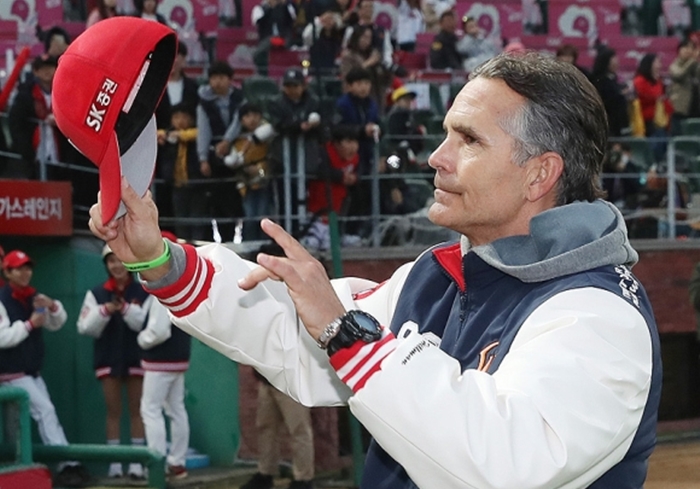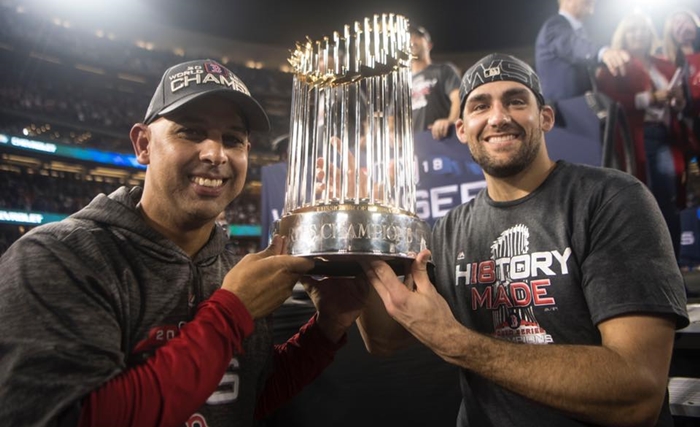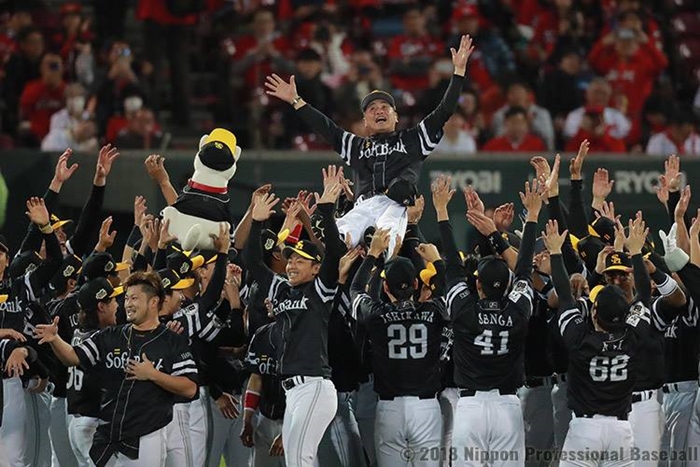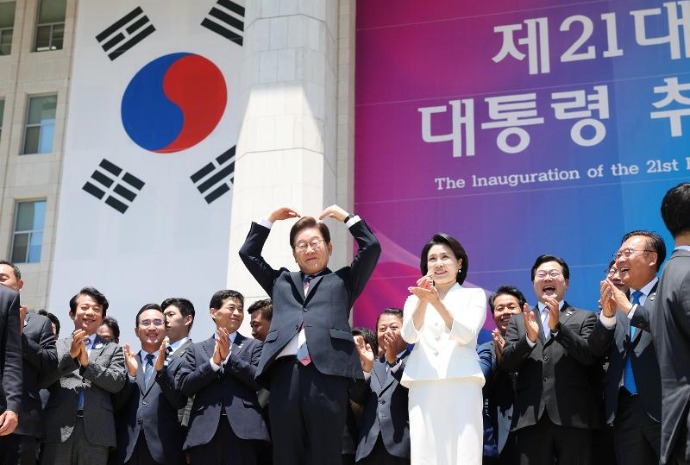
SK Wyverns manager Trey Hillman greets fans following a KBO league game against the Doosan Bears at the Incheon Munhak Baseball Stadium on Nov. 10. (SK Wyverns)
By Lee Kyoung Mi and Lee Hana
In any sport, there is a manager at the helm of the team.
This position comes with great honor, but is also loaded with immense responsibility. That's not to say there aren't some managers who merely hold the title, with little influence.
In the world of sport, baseball is a game that relies heavily on the manager's authority and responsibility. Baseball is a major ball game, though not as widely popular as soccer. In Korea, U.S., and Japan, and more broadly in Taiwan, Cuba, and Venezuela though, baseball has a large and loyal fan base.
Let's take a look at what the managers of the Korean, U.S. and Japanese teams that came out as winners of the 2018 season have in common.
■ Leadership based in trust—SK Wyverns manager Trey Hillman (KBO League)
The SK Wyverns won the 2018 Korean Series in the KBO League. This was the team's fourth league win, and Trey Hillman, the team's manager, played a big part in leading this victory.
Hillman communicated with the team regularly, and trusted the players to perform their best on the field. Hillman had previously managed teams in Japan and the U.S. with a similar set of principles, a leadership based in trust. As a result, Hillman wrote history this season by becoming the first foreign manager to bring a Korean team to the top of the KBO League.
On Nov. 15, Hillman was made an honorary resident of Incheon, home ground for the SK Wyverns.

Boston Red Sox manager Alex Cora (left) holds up the winning trophy for the 2018 World Series on Oct. 29. (Boston Red Sox Facebook)
■ Leadership in communication—Boston Red Sox manager Alex Cora (MLB)
Boston Red Sox manager Alex Cora, making his MLB debut this year, held the 2018 World Series winning trophy in his first year on the team. Cora, who is in his early 40s, got to know his players on a personal level by visiting them in their home towns. This brought his players together, creating Team Boston. Even when the team lost a game, Cora thanked his players, offering support. Based on his people-skills, the "rookie manager" rose to the top of his game, leading the Red Sox to World Series victory.

Following their Japan Series championship victory, the Fukuoka SoftBank Hawks toss their manager, Kimiyasu Kudo into the air at the Mazda Zoom-Zoom Stadium in Hiroshima, Japan on Nov. 3. (NPB Facebook)
■ Top players meet tactics—SoftBank Hawks manager Kimiyasu Kudo (NPB)
Kimiyasu Kudo has been the manager of the Fukuoka SoftBank Hawks since 2015. He led his team to victory in the Japan Series championships this year. Kudo places a lot of emphasis on communication with the players, and excels in placing the right player in the right place. Since landing the job, Kudo has seen three wins. Kudo is particularly good at directing his players in the short-term, as he quickly reorganizes players on the roster based on the athletes' daily performance.
What these three managers have in common is the fact that they brought their team to victory by communicating with the players. In the past, a manager was seen as someone who wielded absolute power and authority. However, since the 2000s, the horizontal management styles of the new managers has shown that communication is key in sports, even in baseball.
km137426@korea.kr
